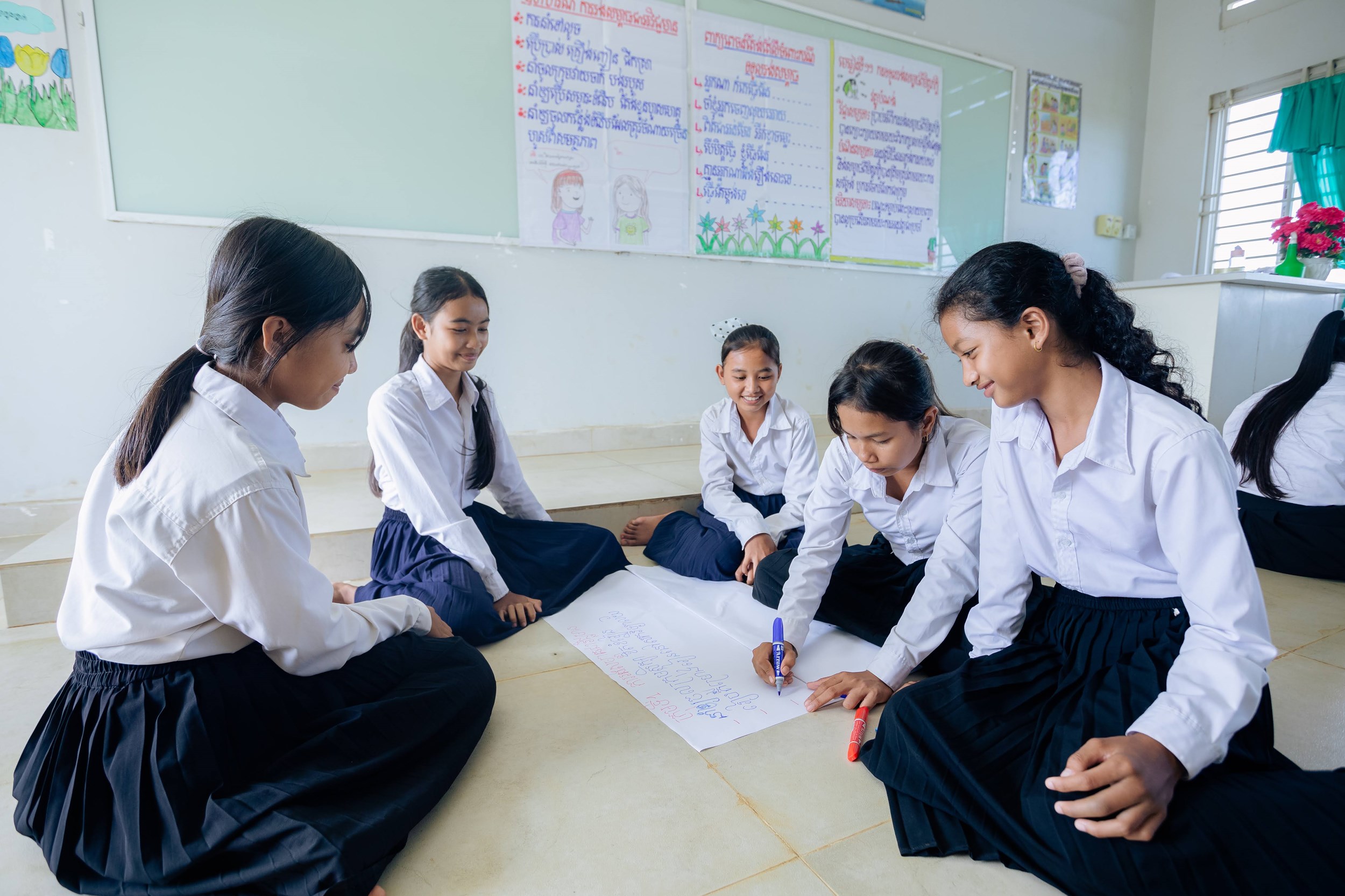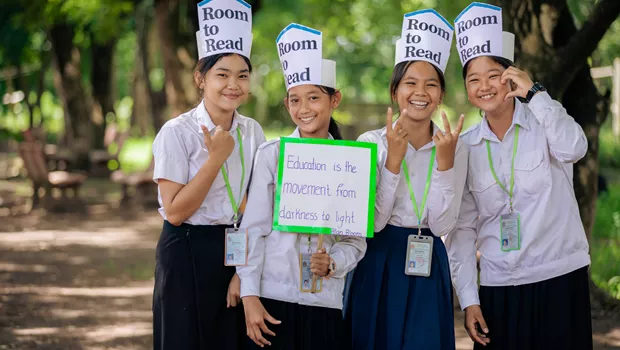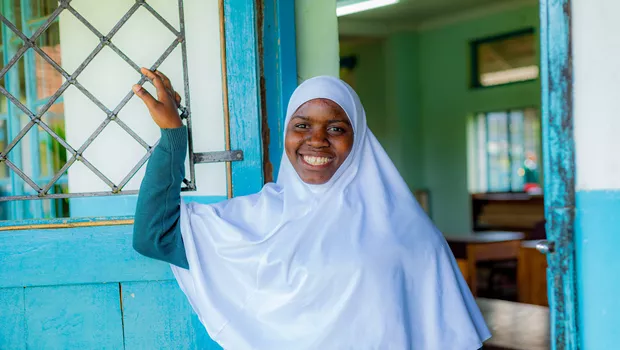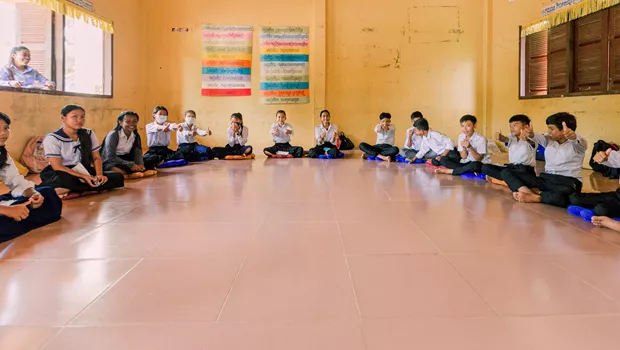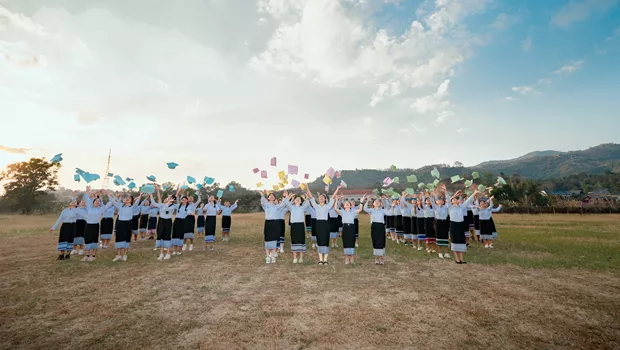The role of Room to Read's life skills curriculum in supporting girls’ future careers and goals
As the global skilled labor landscape continues to shift, it is crucial that girls build future-looking skills like adaptability, resiliency and creative problem-solving. The realities of global challenges, like climate change and economic crises, are catalyzing the creation of new industries while disrupting existing ones. Results from a global jobs report released by the World Economic Forum in 2023 point to a growing demand across industries for transferable life skills like creativity, critical thinking and problem-solving. An overwhelming 73 percent of employers surveyed agreed that analytical and creative thinking, as well as self-efficacy skills like resilience, flexibility and agility will continue to increase in importance and demand.
Room to Read helps girls to stay in school, while providing them with self-efficacy and life skills education, effectively giving them a considerable advantage when entering their local job market. Our Girls' Education Program follows girls through secondary school, helping them overcome obstacles to completing their education and preparing them for employment after graduation. This is achieved through:
- Life skills education: The self-efficacy and life skills girls gain through Room to Read’s life skills curriculum are timeless; seamlessly transferrable across various industries; and serve as a strong foundation for lifelong learning, adaptability and success on any career path.
- Financial literacy workshops: In addition to our life skills curriculum and educational content, Room to Read is field testing a financial literacy program, which aims to help girls gain improved awareness of methods to save money, engage in entrepreneurship and become more financially autonomous. After 1–2 years of participating in financial literacy workshops in Tanzania and Sri Lanka, adolescent girls were found to have a statistically significant improvement in their understanding of savings, gender, finances and entrepreneurship.
- Mentoring: In addition to regular support and guidance from a local mentor, participants in the program also receive support and education from their mentors around tertiary education, vocational education and other opportunities to pursue for their futures.
- Family and Community Engagement: The program engages entire families and communities to underscore the importance of uplifting girls and women as a path toward future prosperity for all. On average across countries, long-run GDP per capita would be almost 20 percent higher if gender employment gaps were closed.
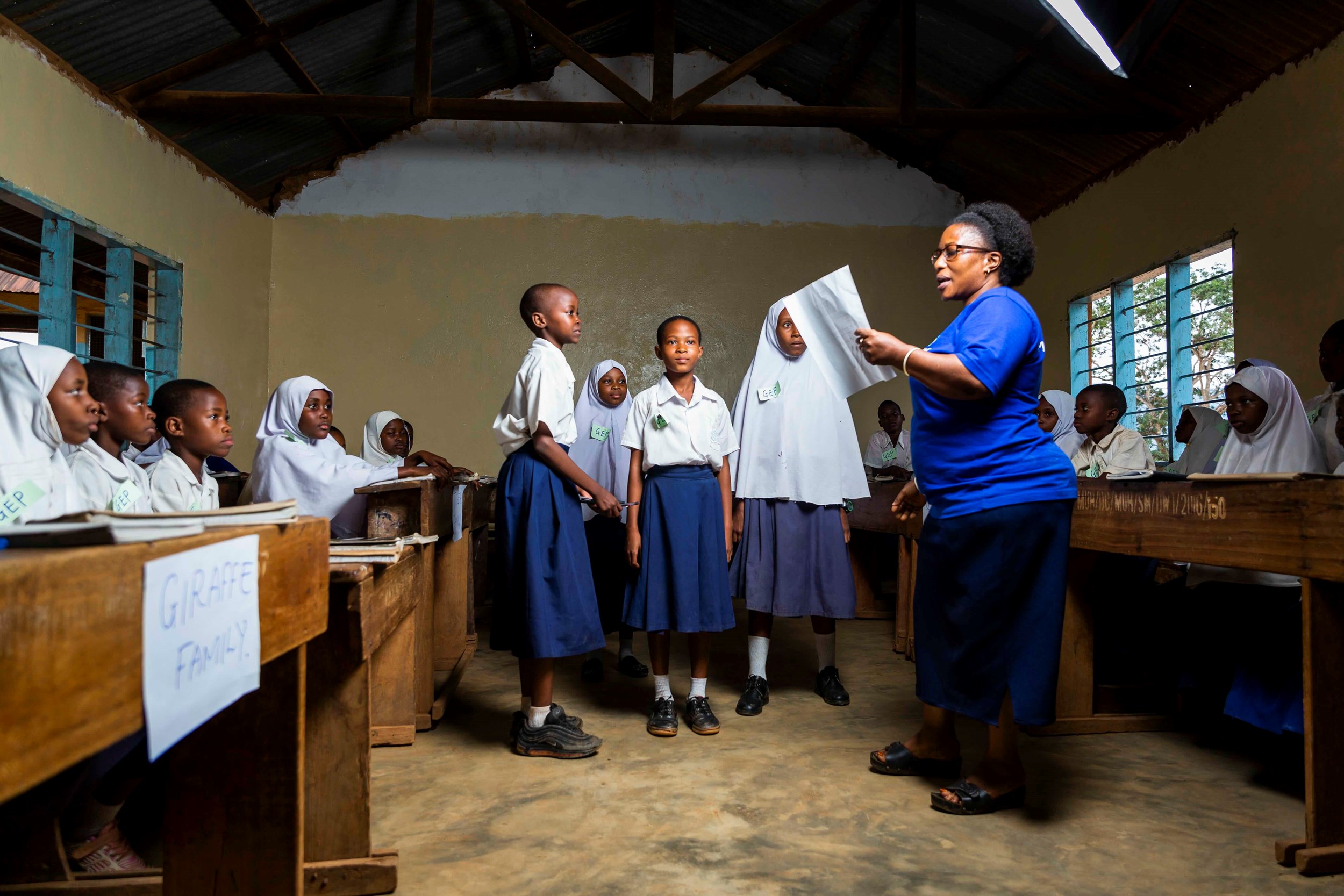 Room to Read's Girls' Education Program in Tanzania.
Room to Read's Girls' Education Program in Tanzania.

